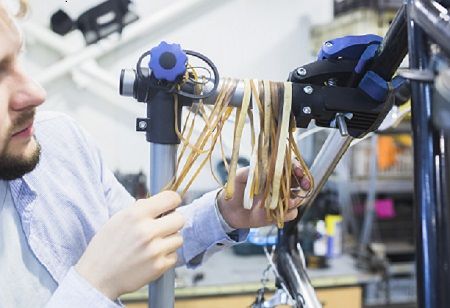India Pharma Outlook Team | Thursday, 04 April 2024

Abbott also disclosed that the U.S. Food and Drug Administration (FDA) granted clearance for a groundbreaking TriClip transcatheter edge-to-edge repair (TEER) system, which has been developed for the management of tricuspid regurgitation (T.R.).
This is a condition when the patient's tricuspid valve allows blood to flow into the heart's upper chamber improperly. After getting approval from the Circulatory System Devices Panel of the Medical Devices Advisory Committee to the FDA, 13 panel members voted to position implant for TriClip above all the device risks.
“This act of the U.S. confirms that the patient with tricuspid regurgitation will benefit from access to this device to improve the quality of life and prevent serious health complications,” declared Paul Sorajja, M.D., head of the Valve Science Center for the Minneapolis Heart Institute Foundation and chairman of the facility for the heart valve and structural diseases of the Minneapolis Heart Institute at Abbott Northwestern Hospital he problem of tricuspid regurgitation (T.R.) is epidemic in the aging population.
Surgical repair options, such as clip implantation, have 5-year survival rates of 20-30%. TriClip offers physicians a therapy that is of proven safety and effectiveness without open heart surgery, which may not be as feasible for those with T.R. who are generally older and sicker.
The tricuspid valve is like a continuous blood flow from the upper fiat chamber to the right ventricle chamber. T.R. manifests as valve failure, flowing reversely and leaking blood backward into the heart. T.R. can lead to overworking of the heart, needing a longer time for its recovery.
As a result, tiredness and breathing shortness occur. The condition might progress with time without proper treatment, and it might lead to atrial fibrillation, heart failure, and eventually death. As for the patients remaining T.R. accompanied with treatment by medical therapy whose conditions are not perfect for performing surgery and cannot be cured, the TriClip is a milestone that can make the patients more comfortable regarding their quality of life.
This device is implanted in the person's leg and delivered through a vein. The TEER (Tissue Engineered Repair) technology works by clipping together a certain part of the tricuspid valve flaps, which helps the blood circulate in the proper direction without open-heart surgery. It is typical that after having their TriClip removed, people who undergo this procedure spend only one day in the hospital and then get back home.